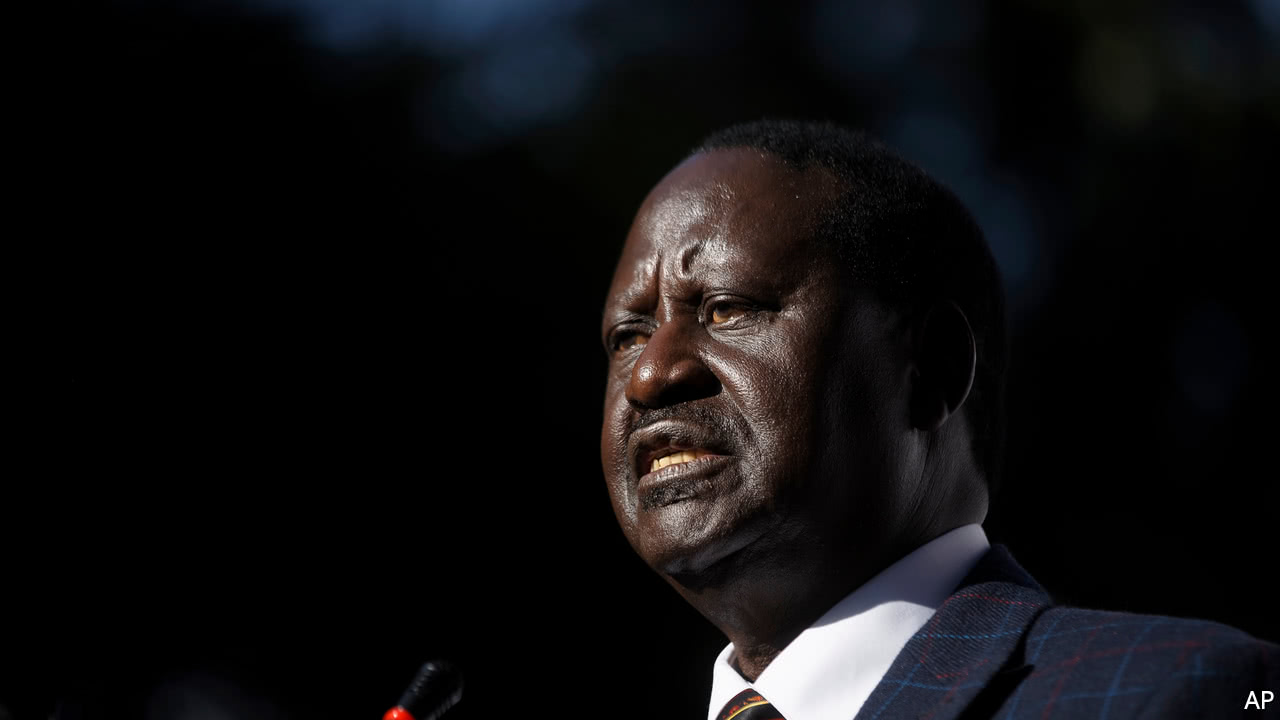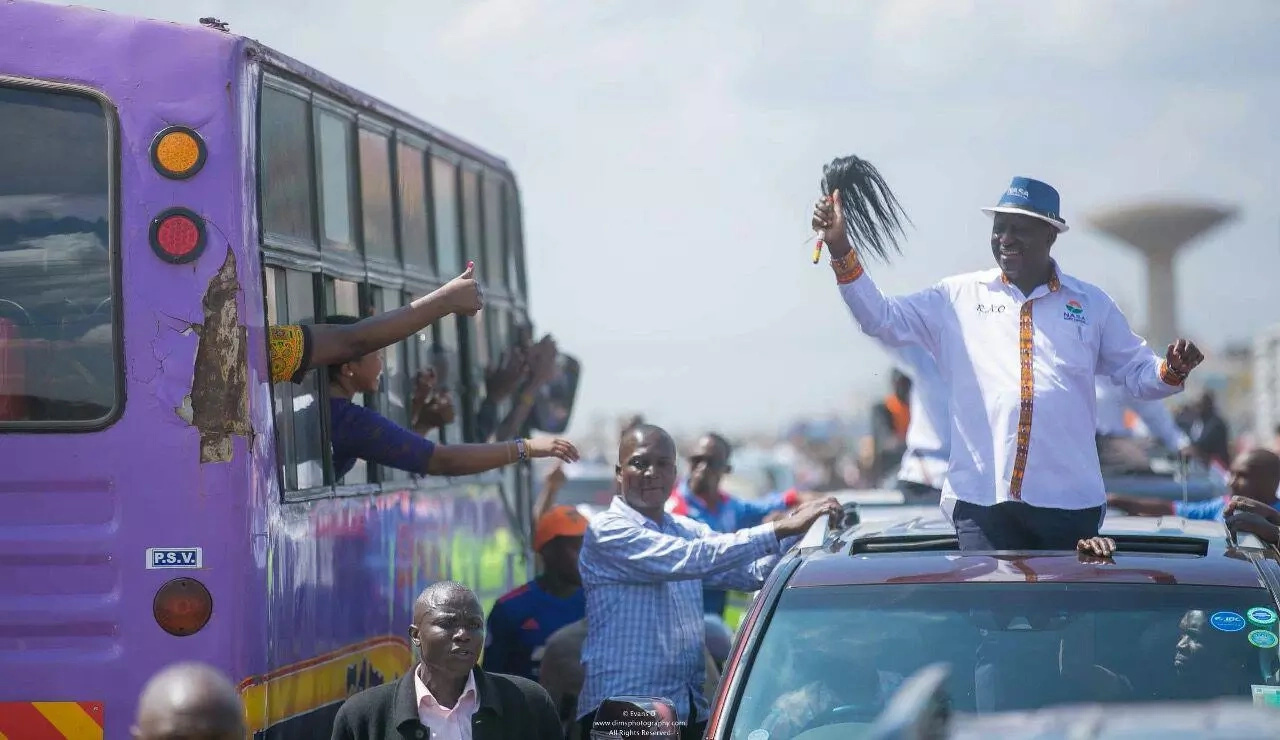By Gitau wa Njenga,London
The Standard,3 March,2005
The United Kingdom yesterday released secret files on
Kenya's founding father Jomo Kenyatta, detailing how
the British trailed him for 24 years.
The secret files, made public through the Public
Record Office under the Freedom of Information Act,
date back 76 years ago and show Kenyatta indulged in
espionage of his own kind.
Secret File KV 2/1787-1789 shows Kenyatta came to the
attention of British Security Service attention in
1929 when he arrived in London and was kept under
surveillance by the Metropolitan Police Special Branch
because of his suspected links to the International
Committee of Negro Workers.
Kenyatta arrived in London on March 8,1929, after
sailing for nearly a month on board Bernadino de St
Pierre cruise ship that had started the voyage at
Kilindini Harbour on February 17, 1929.
Another file, KV 2/1787 (1930-1940), follows
Kenyatta's activities in this period through Special
Branch reports, and from 1934 through intercepted
mail. The warrant for intercepting his correspondence
states that Kenyatta was believed to be succeeding
George Padmore as principal Soviet propaganda agent
for the British colonies.
Kenyatta had met Padmore, a left-wing Communist from
Trinidad, in Berlin, Germany, and it is believed they
remained in Germany until February 21, 1933, when
police deported Padmore.
Intelligence records show that shortly before his
deportation, Padmore had taken Kenyatta to Moscow,
Russia, where Kenyatta allegedly joined the Communist
Party. This activity postdates Kenyatta's visit to
Lenin School in Moscow between 1932 and 1933.
In 1945, he was described as a Trotskyist while a year
later he was labelled "a well-known communist
extremist".
During an earlier stay in Russia, the security service
appears to have lost track of him. However, the
details of Kenyatta's mission to Russia remain
unknown.
The file contains copies of correspondence to
Kenyatta, until the watch on his mail was suspended in
December 1934. There are many reports of his speeches,
including one at an Indian National Congress meeting
at The Strand, Central London, in December 1935 where
he said: "The only way I can see independence being
obtained is by the rising of the native peoples,
casting aside their chains and driving their common
enemy from their land, if need be by the use of bombs,
machine guns and such things."
It is reported that Kenyatta's Indian audience, who
regarded him as "a comedian rather than a serious
speaker", did not take the remarks seriously.
Other elements that emerge on the file are pressures
from Kikuyu organisations in Kenya for Kenyatta to
return home, and details of his financial worries. He
was constantly short of money during his 18-year stay
in Europe.
The warrant on Kenyatta's mail was reapplied following
a request from the Kenyan police in 1939, since he was
now suspected of engaging in subversive work in Kenya.
It becomes clear from the intercepted correspondence
that Kenyatta, no doubt to manage the evident
financial worries, had taken work censoring native
language recordings made by various gramophone
companies intended for export to East Africa. His
services were dispensed with in 1940.
One strange inclusion on the file is a copy of the
passport application form for British archaeologist
Louis Leakey, father of paleo-anthropologist and
former head of the Civil Service, Dr Richard Leakey.
Louis Leakey was a known critic of Kenyatta and they
had a bitter public argument in November 14, 1935 in
London when Kenyatta, then an anthropology student at
London School of Economics, presented a paper on
female circumcision.
Leakey, like Kenyatta, had been initiated into the
Kikuyu age-group of Kihiomwiri and had written
extensively on female circumcision. Writing for an
anthropological journal in 1931, he disagreed with
certain aspects of Kenyatta's presentation, resulting
in both men "screaming at each other in Kikuyu, as
bewildered students watched in horror".
Ironically, Leakey was later appointed by the colonial
authorities to act as it's Kikuyu-English interpreter
at Kenyatta's Kapenguria trial but was eventually
dropped after Kenyatta persistent complaints that he
was biased.
Secret file KV 2/1788 of (1940-1953) contains further
copies of intercepted correspondence and reports of
Kenyatta's activities. In 1946, British Intelligence
Services took some interest in Kenyatta's marriage to
Edna Grace Clarke, and investigations were made to
establish if it was legal. Eventually, a marriage
certificate was located at St Catherine's House, and
the matter was dropped.
Kenyatta married Edna, the daughter of a marine
engineer, on May 11, 1942, at Chanctonbury Registry
Office.
A copy of their marriage certificate shows Kenyatta
put his age as 37, and gave his profession as "author
and lecturer". Edna was 32.
In the document, he describes himself as a bachelor.
There was no mention of his first wife, Grace Wahu,
and his two children, Margaret Wambui and Peter
Muigai left behind in Kenya.
Kenyatta returned to Kenya on September 5, 1946, but
the surveillance continued, and particular interest
was taken in his involvement in the Mau Mau movement.
He was arrested in connection with Mau Mau activities
on October, 20, 1952, along with other nationalists
Paul Ngei, Kungu Karumba, Fred Kubai, Bildad Kaggia
and Achieng Oneko.
Secret file (KV 2/1953-1954) focuses on Kenyatta's
trial at Kapenguria and conviction for managing the
Mau Mau rebellion.
Kenyatta and his co-accused were later sentenced to
seven years in jail with hard labour and were
imprisoned in Lokitaung in the remote Turkana
District.
An interesting aspect of this file is the allegation
that even in custody in Kapenguria, Kenyatta was
continued exchanging covert messages with Padmore, who
was by now working as Kwame Nkrumah's personal
assistant, using secret radios.
Another African nationalist whose secret files have
also been made public are Kwame Nkrumah, who according
to file No KV 2/1847-1851, came to the attention of
the Security Service in 1942.
Nkrumah was studying in the United States during the
Second World War when the Security Service was
informed of an anti-British speech he had made at a
meeting on "The Role of the Negro in the War Effort in
Philadelphia".
Nothing specific, however, linked Nkrumah to
Communism. A dispatch from the Public Record Office
says the motivation for Security Service interest in
figures like Kenyatta and Nkrumah was because of
suspected links to Communism or to the Soviet Union,
rather than because of their pro-independence or
Pan-Africanist stand.















